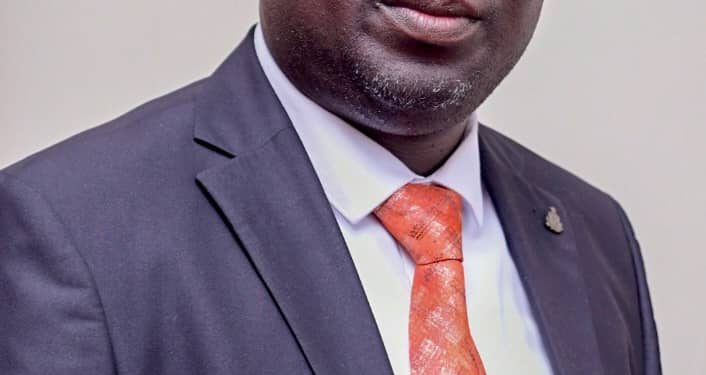Does the opposition in Uganda ever learn from history? Counting from 1996, through 2001, 2006, 2011, 2016, 2021 and now on to 2026. The supposedly long-awaited transition from President Yoweri Museveni has eluded its promoters and will continue to do so into the future going by what’s unraveling right before our eyes. It’s a fact that 38 years for President Museveni in power is thanks to his ingenuity, tact, will power, performance, organisational capacity and divine anointing. On the other side of the political coin is the “shortness” of his opponents in the same categories. The opposition has told too many lies about their capacity and the President Museveni’s standing with Ugandans. Time is catching up with them!
Current happenings inside the main opposition parties, namely; FDC and NUP are giving us an early glimpse into what to expect in the near future. If it’s not splitting into splinter groups, it will be implosion or both, and there is no way that assures the concerned parties of success in any endeavor. Even without looking at elections, operating a healthy, functional and cohesive political organisation is an achievement, which comes with benefits in terms of competitiveness in the field of play.
Presently, FDC is a shadow of its former self. First, Maj. Gen. Mugisha Muntu who had been its chief organizer and president at some point, defected to start his own party, ANT. He took with him some of FDC’s big wigs and members. As he departed, he prophesied that time would, contrary to accusations leveled against him expose the real moles in his mother party.
Then last year, time matured! After a hiatus in which he feigned lack of interest in public activity, including boycotting contesting in the 2021 elections, Besigye emerged at the head of a faction based at Katonga road (in Kampala) crying foul that the party he once headed and on whose ticket he contested for President four times, had been infiltrated and that the incumbent party President and 2021 presidential flagbearer, Patrick Amuriat Oboi and Secretary General, Nandala Mafabi, knew something about the development. He exposed the behind-the-scenes of the party’s 2021 elections status which by no chance could have allowed the party to fare any better. The formerly most powerful opposition party was upstaged by the new NUP which currently has majority members in the House. Amuriat himself came third while President Museveni won comfortably.
Besigye didn’t campaign for Amuriat, and when last year he came out on why he didn’t feature on the campaign trail, the excuse was that “dirty money” had come into the party and he didn’t want to associate with it.
Nevertheless, with or without whichever money, FDC slipped in its rankings and as we talk, it will only be a miracle if it doesn’t split into two-Besigye is consulting on how to form a new party. But the bad blood is literally boiling between his supporters and those of the Najjanankumbi faction. The other day they fought during the burial of activist Sarah Eperu in Ngora.
Daily, they are exchanging bitter words and accusations, all the while exposing their dirty linen which can only leave party members embarrassed and regretting their choice of belonging. Going into 2026, it means that what was left of FDC supporters in 2021 after the emergence of NUP and ANT will again be shared between Besigye and whoever whatever remains of the official party will front.
On the other hand, NUP which displaced FDC is equally in turmoil, with the membership split between party president, Kyagulanyi Sentamu (Bobi Wine) and former LOP, Matthias Mpuuga. The latter is “accused” of benefitting from a service award and he has stood his ground and defending himself. A defector from DP, Mpuuga was already targeted by the radical wingers in NUP apparently for being moderate in his approach. Without elders at hand to mediate some of these differences, NUP will struggle to survive an internal split. At a time when building structures and setting a clear policy agenda would help set its roots, the quarrels and fights will certainly do the opposite.
Why is money such a disorganising factor in these parties? It has to do with absence of a strong programme and ideology to unite members and to sell to Ugandans. Absence of ideas creates room for shallowness, gossip, intrigue, suspicion and faultfinding which recipe is disastrous for any organised group. If the trend continues, we know who will not make much of 2026.
President Museveni prophesied and warned us about the functionality of political parties in societies still on the mend. It’s a dangerous game which creates fertile ground for dividing our people. If members of the same parties are hard at each other as we see in NUP and FDC, how harder are they on those belonging in other parties? Why can’t we learn from the post-independence era and errors of political groups which worked for narrow interests as opposed to national causes?
At various intervals, there have been attempts to build coalitions and unifying pressure groups. On each occasion, I have predicted that such coalitions cannot hold since there is nothing in common between the allying partners expect fighting to remove President Museveni from power. Every single time they try and fail the public loses trust in them and retreats to the President’s side. As we talk, the fights in opposition parties are benefitting NRM. I have personally received lines of defectors approaching me to take them to the President, some with sensitive and intriguing secrets indicating why they are running away from sinking ships.
2026 is coming too early for warring opposition parties. Time will reveal!
The author is the Deputy Press Secretary to the President of Uganda
Contact: kirundaf2@gmail.com
0776980486/0783990861















